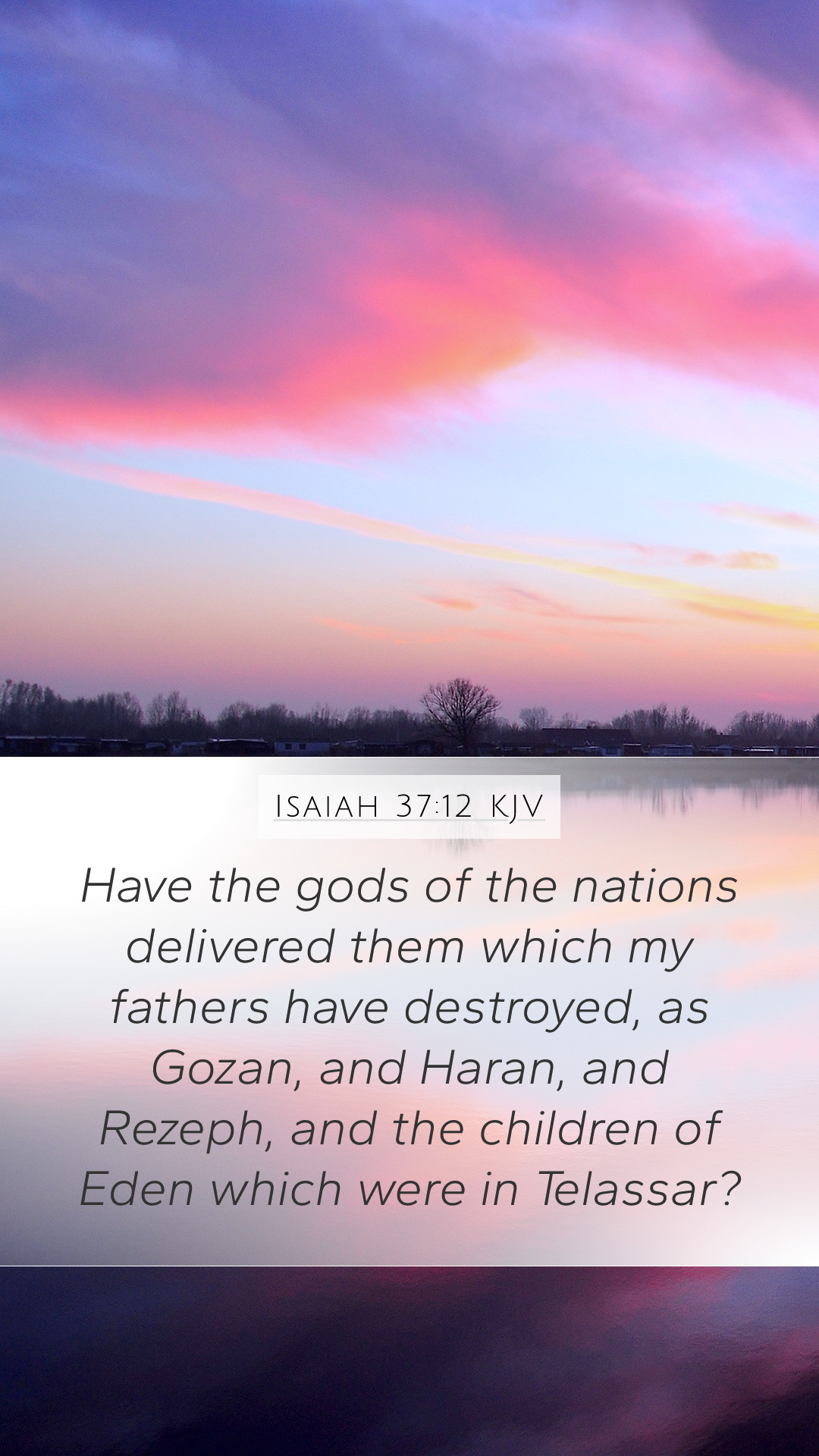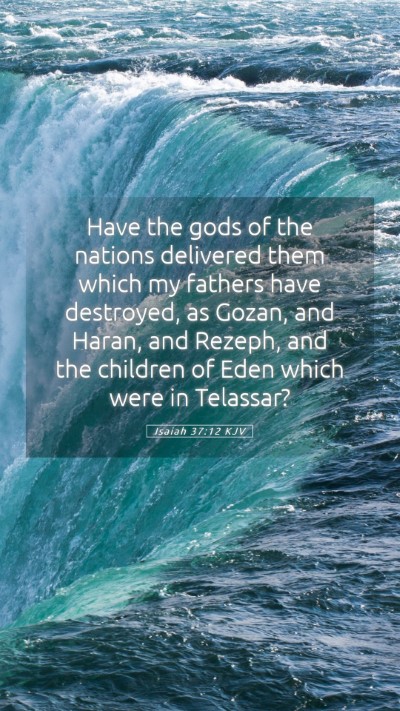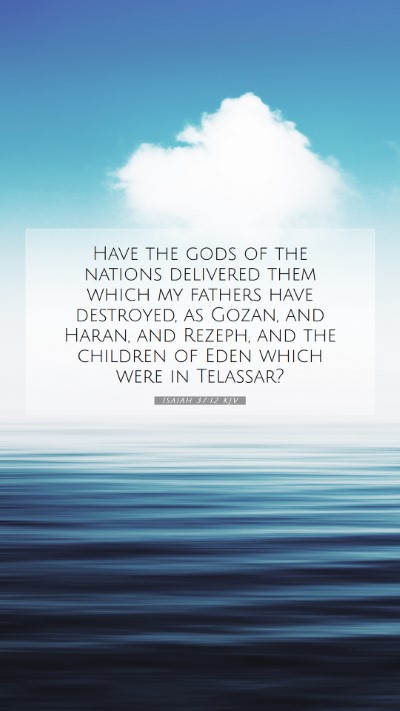Bible Verse Commentary: Isaiah 37:12
Bible Verse: Isaiah 37:12 - "Did the gods of the nations deliver them which my fathers have destroyed, as Gozan, and Haran, and Rezeph, and the children of Eden which were in Telassar?"
This verse, found in Isaiah, conveys significant insights about the futility of idol worship and serves as a rhetorical question posed by the Assyrian king's messenger to challenge the faith of Hezekiah, King of Judah. The essence of this scripture lies in its exploration of divine sovereignty versus the impotence of false gods.
Understanding the Context
The historical backdrop includes the Assyrian threat to Jerusalem during the reign of Hezekiah. This context reveals the larger themes of trust and reliance on God for deliverance amidst overwhelming danger.
Insights from Commentaries
-
Matthew Henry:
Henry emphasizes that the rhetorical question discloses the vanity of relying on idols that could not save their own nations. He notes that the prophetic books serve to remind believers of God's unmatched power to deliver.
-
Albert Barnes:
Barnes points out that the destruction of cities symbolizes the fate of those who place their trust in anything other than the true God. His commentary illustrates God's desirability of worship by showing how vain the idols of other nations are in providing salvation.
-
Adam Clarke:
Clarke’s analysis delves into the historical figures mentioned in the verse, drawing the reader's attention to how these nations were destroyed. His interpretation shows that this serves as a warning against the alliances with and beliefs in pagan nations that have already faced God’s judgment.
Biblical Exegesis
The question posed serves an apologetic function, helping to reinforce the truth of Jewish monotheism and God’s unique capability to save. The verse also reflects a disillusionment with the reliance on idols as sources of strength and protection. This opens a deeper philosophical inquiry about the nature of faith, power and reliance on God versus human-made deities.
Practical Applications
In applying the insights from this scripture to everyday life, one can consider how modern "gods" (money, power, status) often fail to provide genuine security and redemption. Hezekiah's reliance on God serves as a model for believers today facing crises.
Related Bible Verses
- 2 Kings 19:12: Discusses the same events and offers further insight into God's sovereignty over nations.
- Isaiah 36:18: Continues the narrative of the Assyrian threat and highlights the challenge to Hezekiah's faith.
- Psalm 115:4-8: Addresses the nature of idols, emphasizing their inability to provide help or protection.
Conclusion
Overall, Isaiah 37:12 serves as a powerful reminder of the supremacy of God over all nations and idols. Understanding this verse within its historical and theological context allows for a deeper grasp of God's faithfulness and an invitation to reflect on where individuals place their faith.
SEO Keywords
This commentary integrates keywords such as Bible verse meanings, Bible verse interpretations, Scripture analysis, and understanding Scripture, ensuring comprehensive coverage of this pivotal verse for anyone searching for Bible study insights or explanations that deepen their Bible study experiences.


